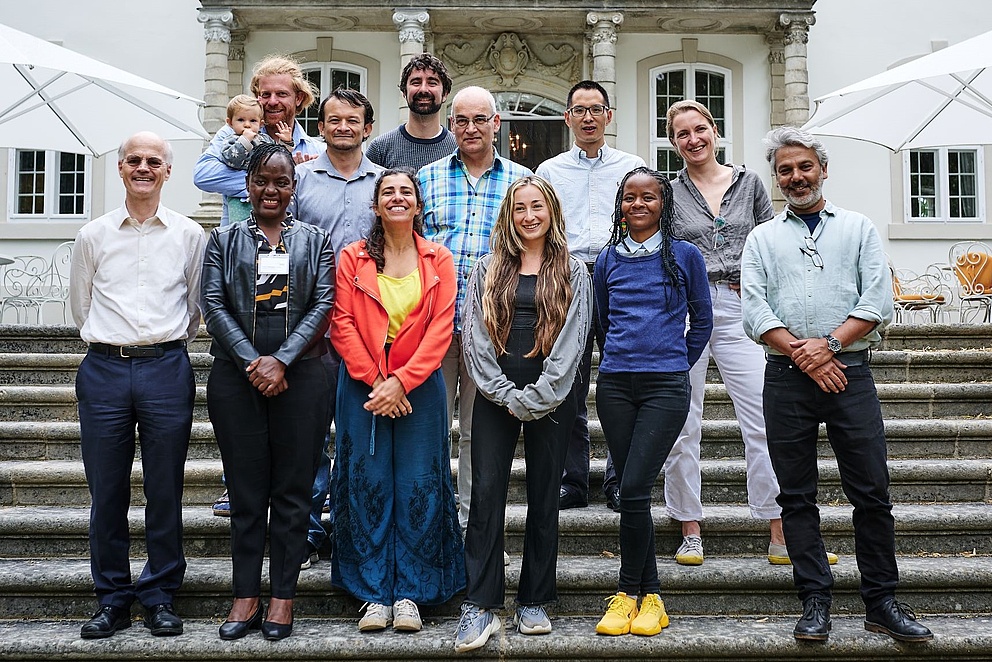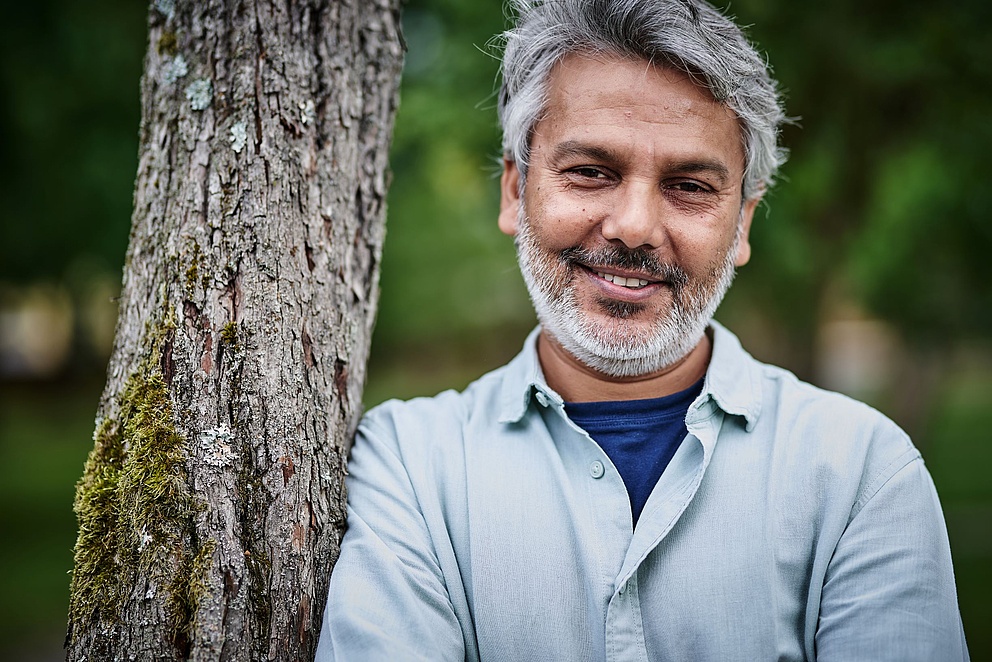

Contact
Press, Communications and Marketing
Tel.: +49 228 833-144
Fax: +49 228 833-441
presse[at]avh.de
What is our understanding of natural resources and how are we using them? How do we want to handle and use them in the future? As part of the Humboldt Residency Programme, a hydrogen expert from Kenya, a waste researcher from China, artist from Uruguay and an Indian architect, among other participants, are looking together for solutions for sustainable habitats and living spaces. The reason for this diversity: solutions require a holistic approach – starting with energy generation and extending all the way to consumer behaviour.
With its Humboldt Residency Programme, the Alexander von Humboldt Foundation brings researchers, artists, civil society actors, and journalists together every year to work on a current issue of social relevance during a six-week residency in Berlin/Brandenburg. Our motto for 2023: “Our Precious Resources: Pathways to a Secure and Sustainable Future.” This year, experts from Belize, Brazil, China, Germany, Great Britain, India, Kenya, the Netherlands, South Africa and Uruguay will be sharing their expertise and insights on how we can comprehend, use and protect resources.
Following an intensive two-week familiarisation and work phase at the Cultural Foundation Schloss Wiepersdorf in Brandenburg, the participants will shift gears and experience Berlin’s urban diversity starting mid-August. This switch will also define accents for the content of their work. How is sustainability practised in rural and urban areas? What lessons can be learned from regional differences and what can we learn from the participants’ international perspectives?
Pratyush Shankar, architect and professor of urban history and design at Navrachana University in Vadodara, India, heads this year’s Humboldt Residency Programme. He wants to focus on our understanding of natural resources, using urban landscapes as a starting point: “One critical issue for the future will be how we human beings position ourselves in relation to nature and how we define progress and development. We humans believe that nature has to be subdued and tamed. Technology is considered to be the solution for all problems.” This is an attitude, the architect noted, that we should rethink in light of the growing threat of torrential rains and major whirlwinds, flooding, extreme heat and drought. “What I would like to attempt together with this transdisciplinary group is to develop a cultural approach to solving the climate crisis”, Shankar said.

Climate innovations and sustainable ways of living can be advanced only in the course of a dialogue. The Humboldt Foundation has no doubts about this. Its President Robert Schlögl views exchange between research and society as the key focus of the Foundation’s work: “Research has an impact on society today because knowledge belongs to and should benefit all of humankind. We are pursuing the benefits that research and the sharing of ideas bring.”
The Residency Programme consequently collaborates with local actors as well: the Cultural Foundation Schloss Wiepersdorf and the Climate Change Center Berlin-Brandenburg (CCC). During their residency, the group will meet with members of the CCC network and develop new approaches to the subject of “resources”, not least in a dialogue with the public in Berlin and the state of Brandenburg. The findings of the 2023 Residency Programme will be presented on 7 September at the Kosmos lecture in Berlin.
Further information regarding the programme, participants and planned events is available here.
The Residency programme is being financed by Germany’s Federal Foreign Office and the Berlin Senate Department for Science, Health and Care.
Every year, the Alexander von Humboldt Foundation enables more than 2,000 researchers from all over the world to spend time conducting research in Germany. The Foundation maintains an interdisciplinary network of well over 30,000 Humboldtians in more than 140 countries around the world – including 63 Nobel Prize winners.
